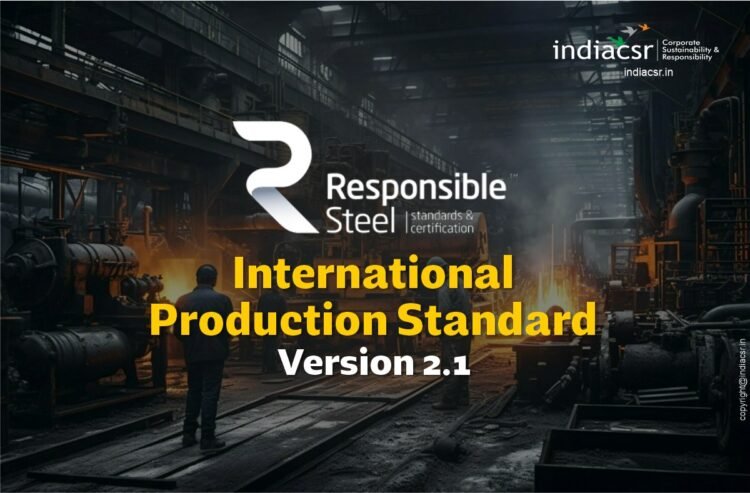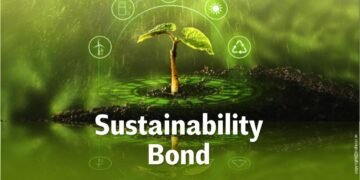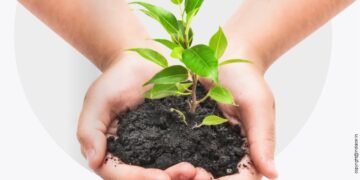The ResponsibleSteel International Production Standard applies to steel production, processing and finishing, and includes requirements for the responsible sourcing of input materials.
*****
ResponsibleSteel International Production Standard V2.1 provides the steel industry with a roadmap to net zero and allows steelmakers to demonstrate tangible progress on decarbonisation and other key ESG issues such as biodiversity, water stewardship, labour rights and more. The global Production Standard has been developed over the course of seven years to recognise, encourage and reward steel sites operating in an environmentally and socially responsible manner. The Standard’s 13 Principles cover a full range of ESG issues, identified and agreed upon with our members.
Version 2.1, released on May 21, 2024, incudes revisions to ResponsibleSteel’s requirements for GHG emissions and sourcing input materials. These requirements are designed to drive down emissions and drive up standards in the supply chain, helping steelmakers transition to a responsible, decarbonised future.
ResponsibleSteel is a global multistakeholder standard and certification initiative for the steel industry. Its mission is to be a driving force in the socially and environmentally responsible production of net-zero steel, globally.
ResponsibleSteel’s members include some of the leading players in the industry working together to minimise the impact of steel manufacturing on people and the planet. Businesses from every part of the steel value chain, civil society groups, and other organisations are welcome to join.
Global Steel Industry’s Role in Economy and Emissions
The global steel industry employs over 6 million people and contributes around 3.8% to global GDP. Yet it also contributes around 10% to global greenhouse gas emissions from energy and industry according to the International Energy Agency (IEA).
Introduction of ResponsibleSteel International Production Standard Version 2.1
The ResponsibleSteel International Production Standard Version 2.1 will play a critical role in driving down global steel emissions and driving up standards across the steel supply chain. Developed in consultation with ResponsibleSteel members and stakeholders from across the steel value chain and civil society, Version 2.1 strengthens ResponsibleSteel’s Progress Level requirements for responsible materials sourcing and climate change and greenhouse gas emissions.
Importance of Decarbonising the Steel Industry
As global leaders look for ways to mitigate the impacts of climate change, it’s more important than ever that the steel industry moves to decarbonise and adopt more responsible production practices. Version 2.1 of the Standard provides the steel industry with a technical roadmap to net zero and allows producers to demonstrate tangible progress not only on decarbonisation but across other key environmental and social issues such as biodiversity, water stewardship, pollution, labour rights and more.
Endorsements and Feedback on the New Standard
Gerry Tidd, Chairman of ResponsibleSteel’s Board of Directors commented, “The ResponsibleSteel International Production Standard is the result of extensive development and stakeholder input and has been widely endorsed by highly respected organisations such as the International Energy Agency. We have listened to feedback from across the steel industry, civil society and others and updated the Standard to ensure it is both effective and workable. We are proud to launch Version 2.1 of the industry’s most robust, high-quality standard – one that is built on a foundation of integrity and transparency.”
Progress in Steelmaking Sites
Steelmaking sites globally are already making progress. ResponsibleSteel has over 80 sites in 19 countries certified against the International Production Standard’s Core requirements. With the revisions incorporated in Version 2.1, steelmakers are now set to pursue the next step on ResponsibleSteel’s certification journey: certified steel.
Certification and Marketing of ResponsibleSteel Products
Steelmakers who meet the revised Progress Level requirements for responsible materials sourcing and decarbonisation will for the first time be able to label and market their products as ResponsibleSteel certified. “This will give steel buyers – all the architects, automakers, builders and manufacturers – confidence that the steel they are procuring has been produced responsibly following a credible independent assessment,” Mr Tidd said.
Defining ‘Green Steel’ and Responsible Steelmaking
Annie Heaton, CEO of ResponsibleSteel stated, “An increasing number of players have opinions about what so-called ‘green steel’ means. The ResponsibleSteel International Production Standard provides a clear, credible and consistent way to define it not only by providing a fair and universal benchmarking system for low-emissions steel globally but by charting a roadmap towards responsible steelmaking every step of the way.”
Beyond Carbon Mitigation
She continued, “We must also remember that truly responsible steelmaking goes beyond mitigating carbon, to other environmental and social impacts, including the rights of the millions of people working in the industry and across the supply chain as well as local communities.”
Meeting Global Goals with ResponsibleSteel Standard
Now is the time for the steel industry to pick up the pace to meet the goals of the Paris Agreement and the Sustainable Development Goals, by meeting the Progress Level requirements of the ResponsibleSteel International Production Standard Version 2.1. This way, we will create a universally consistent, credible market for responsible low-emissions steel.
*****

FAQs on The ResponsibleSteel International Production Standard
Q: What does the ResponsibleSteel International Production Standard include and why is it significant for steelmakers?
A: The ResponsibleSteel International Production Standard consists of 13 Principles containing over 500 requirements for the responsible sourcing and production of steel. It covers some of the most challenging areas of sustainability for steelmakers, such as decarbonisation, but also includes requirements on labour, human rights, water, biodiversity, and more. This comprehensive approach ensures that responsible steelmaking goes beyond just climate change mitigation. The Standard is reviewed at least every five years with input from members and stakeholders to ensure continuous progress and promote high levels of responsibility in steelmaking.
Q: How was the ResponsibleSteel International Production Standard developed and what is its goal for 2024?
A: The Standard was developed through a process aiming to comply with the ISEAL Code of Good Practice for standard-setting. ResponsibleSteel aims to undergo an independent evaluation for ISEAL Code Compliant Status towards the end of 2024. The development process emphasizes collaboration and transparency, involving the steel industry, upstream and downstream stakeholders, and civil society. This extensive multi-stakeholder involvement makes the ResponsibleSteel International Production Standard the most trusted standard for steel globally.
Q: What does ResponsibleSteel certification apply to and how does the certification process work?
A: ResponsibleSteel certification applies to steelmaking sites and related sites that process raw materials for steelmaking or produce steel products. To achieve certification, sites must meet the core requirements of the ResponsibleSteel International Production Standard. Additionally, sites can be audited against four Progress Levels assessing progress on decarbonisation and responsible materials sourcing. Sites achieving at least Level 1 for both areas can market their steel products as certified steel. The certification process involves contracting a recognized certification body, conducting a self-assessment, and undergoing a two-stage audit process.
Q: What are the stages involved in the ResponsibleSteel audit process?
A: The audit process consists of two stages. Stage 1 involves a review of the self-assessment, site documentation, and a media and stakeholder analysis by the auditors. Stage 2 includes an onsite visit and extensive stakeholder interviews conducted by the auditors. Following the audits, the auditors prepare a report with a certification recommendation, which is reviewed by the ResponsibleSteel Assurance Panel. If approved, a certificate and public audit summary are published on the ResponsibleSteel website. Certificates are valid for three years, during which a surveillance audit ensures ongoing progress on any initial non-conformities.
Q: What benefits have been found from sustainability standards like ResponsibleSteel, according to ISEAL?
A: Independent research commissioned by ISEAL found that sustainability standards improve market access, profitability, and production for certified businesses. They enhance reputation while reducing risk for manufacturers and retailers. Early business benefits include sales and marketing improvements, followed by operational, procurement, stakeholder engagement, and sector-wide changes.
Q: What is the goal of the ResponsibleSteel independent third-party certification program?
A: The program is designed to provide businesses and consumers worldwide with confidence that the steel they use has been sourced and produced responsibly across all levels of the steel supply chain.
(India CSR)



























